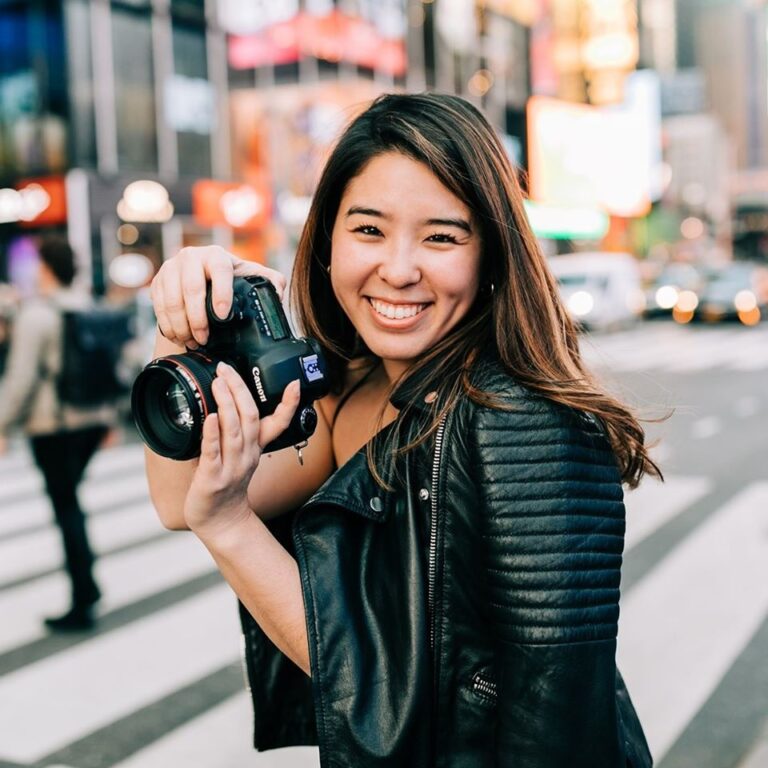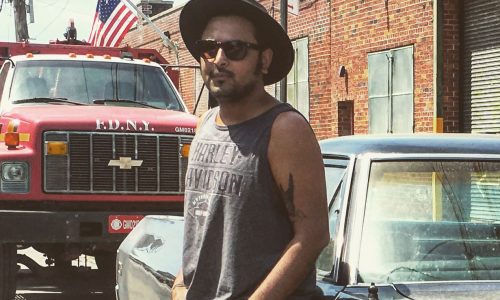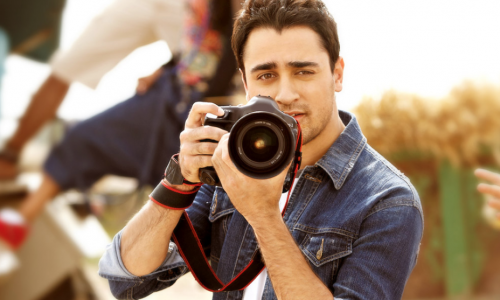Learn Digital Photography at NYFA
In this workshop, students learn the essentials of photography through hands-on experience, creative photographic projects, and rigorous coursework. This program is designed for individuals with various experience levels in photography, and is a great fit for beginners or aspiring photographers who wish to refresh their skills.
Workshop DescriptionWorkshop Name: 4-Week Photography Workshop
The 4-Week Photography Workshop is an intensive exploration of photography in the modern age. As all introductory skills are covered, no prior experience is required to enroll. Students learn how to capture and refine great images, developing the skills necessary to research, compose, and capture compelling digital photographic projects.
As the workshop goes on, students expand their repertoire of techniques with light and shadow as they work with lighting and grip hardware, as well as inexpensive and unconventional practical sources of light and shadow. All students are required to bring a digital camera with manual exposure control.
Many students who take this program enroll in more extensive NYFA photography programs, such as the 1-Year Photography Certificate. NYFA also offers the possibility to learn photography from anywhere through a variety of online photography workshops.
To learn more about the 4-Week Photography Workshop, see NYFA’s Course Catalog or request more information.
CLASS DETAILS
Photography
This Area of Study encompasses lecture, demonstration, critique, and shooting assignments on location or in the studio. Students learn the components of exposure and mechanics of cameras and lenses. They are taught to be aware of the unique characteristics that light can take: direct, diffused, reflected and/or tempered by atmosphere.
Imaging
An intensive introduction to Adobe Lightroom as a RAW digital editing and image library management system. Students will immerse themselves in Adobe Lightroom, and will acquire key digital darkroom techniques from nondestructive editing to unparalleled color and tonal control over their own images. They will also learn the entire process of digital workflow, from RAW processing through output for a web page and print. Along with lectures and demonstrations, Imaging I allows plenty of lab time to practice and perfect their image-editing skills.
Ways of Seeing
Intensive study, analysis, and critique of the work of master photographers, their techniques, aesthetics and
approaches help to equip students to choose the most effective means of realizing their own projects. The history of photography is studied from its beginning through 1960. Students are guided to analyze the cultural and societal impact of photography, and the evolution of the medium from the original assumed veracity of photographs to the exploitation of a viewer’s acceptance of the photograph as “truth,” given the use of modern photographic manipulation with tools such as Photoshop. Additionally, students become intimately familiar with a particular photographer’s body of work through written research projects.
Discussions include composition, traditional and non-conventional framing, color theory, design, semiotics (signs and symbols), the effect of technological changes on photography, the surprisingly long history of using viewer assumptions to distort the truth, and the use and limitations of photography as a documentary and personal record.
Vision & Style
This course teaches students critical thinking skills, the visual language of photography, and pushes them to explore their personal interests in photography as they conceptualize, execute, refine, and critique. Students will define and develop a personal, iconic visual style and specific area of interest, studying master bodies of work across both genres as examples. The primary focus will be on still photography, but the use of moving images will also be explored through in-class assignments. Students will become familiar with principles of graphic design, composition, color, editing, sequencing and presentation. Through writing, journaling, drawing, research and photographic assignments, students will gain a level of self-awareness necessary to understand the most salient origins for their ideas, and conceive how their work might fit into the context of current practices and attitudes.
Shooting Lab
A unique, hands on opportunity for the student to develop core professional skills and techniques during weekly in-studio and on-location photo shoots with real-time guidance. Covering a wide range of genres along with aesthetic, logistical and technical challenges, the student will have the opportunity to work directly with their instructor, applying new skills in still photography across a range of assignments of increasing complexity.
Gallery Tour
Students will be taken on a weekly guided tour of current gallery and museum exhibitions of photo-based work and studio visits, becoming familiar with current curatorial standards and practices. They will browse exhibition catalogues, and become acquainted with print prices and editioning as a key factor, while taking advantage of opportunities to directly meet with and hear from exhibition curators and artists. Students will see firsthand the true finished product of the medium, using a diverse array of substrates, mounting and framing techniques and sequencing and presentation ideologies. Instructors lecture and lead guided discussions about artistic practices and bodies of work both contemporary and throughout the history of the medium
TIMES AND BREAKDOWN BY WEEK
The 4-Week Photography Workshop is a full time workshop. To learn more, request information.
PROGRAM AND SOFTWARE REQUIREMENTS
This course requires the following software and equipment:
- External hard drive (generally costs $30-$200)
- An SD Card
- Digital camera with manual exposure controls
4-Week Photography Workshop
| Location | Program Start Date and End Date | Tuition |
|---|---|---|
| New York City | June 2, 2025 – June 28, 2025 September 15, 2025 – October 11, 2025 February 9, 2026 – March 7, 2026 June 1, 2026 – June 27, 2026 September 14, 2026 – October 10, 2026 | Tuition and Equipment & Technology FeeTuition:$4,253 Equipment & Technology Fee:$305 Wellness Services & Programming Fee:N/A |
This workshop is available at NYFA’s New York City and Florence, Italy campuses. At all campuses, students have access to equipment and digital editing labs.
Students complete various digital photographic projects, approaching each project as a concise statement of artistic and aesthetic intent. To learn more, see our our projects page.
Please note: Equipment, curriculum, and projects are subject to change and may vary depending on location. Students should consult the most recently published campus catalog for the most up-to-date curriculum.



